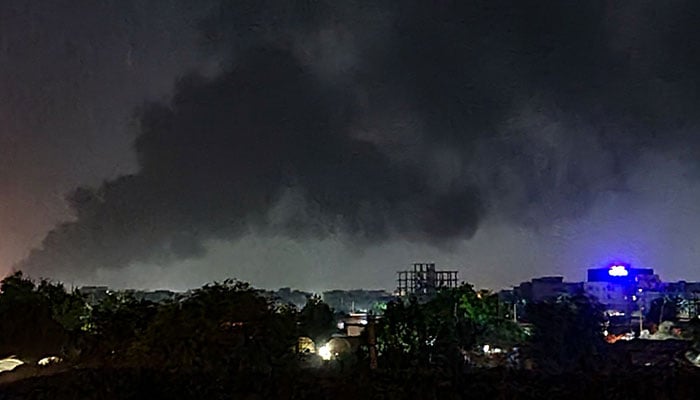

Amid ongoing violence and clashes in Khartoum, Sudan, the country’s warring factions have reached a seven-day ceasefire agreement, even as the capital remains shaken by air strikes and artillery exchanges. The United States and Saudi Arabia announced the deal after talks in Jeddah, stating that the ceasefire will commence on the evening of May 22 and can be extended with mutual consent.
This ceasefire marks a significant development, as previous truces have been repeatedly violated since the conflict erupted five weeks ago. In contrast, the agreement reached in Jeddah has been formally signed by both parties and will be supported by a US-Saudi and internationally-backed ceasefire monitoring mechanism, according to the Saudi foreign ministry.
The focus of subsequent talks will revolve around improving security and humanitarian conditions for civilians. This includes the removal of forces from urban areas, including civilian homes, facilitating the movement of civilians and humanitarian actors, and enabling public servants to resume their duties.
The power struggle between regular army chief Abdel Fattah al-Burhan and his former deputy-turned-rival Mohamed Hamdan Daglo, who leads the paramilitary Rapid Support Forces (RSF), erupted into armed conflict on April 15. The fighting has resulted in hundreds of casualties, mostly civilians, and displaced over a million people. The United Nations has expressed deep concerns about the deteriorating humanitarian situation in Sudan, compounded by the fact that one in three Sudanese people relied on aid even before the outbreak of war.
The announcement of the ceasefire comes two weeks after the initial gathering of the warring generals in Jeddah, during which they signed a commitment to respect humanitarian principles and allow much-needed aid. However, UN aid chief Martin Griffiths highlighted significant violations of this agreement, describing them as “important and egregious” and falling short of a full ceasefire.
Efforts for peace and dialogue were further emphasized when regular army chief Abdel Fattah al-Burhan sacked his former deputy Daglo and appointed three allies to top military positions. Malik Agar, a former rebel leader who signed a peace deal with the Sudanese authorities in 2020, expressed determination to end the war and push for negotiations, stressing the importance of a professional and unified army for Sudan’s stability.
The violence has not been limited to Khartoum alone, as it has also spread to the war-torn region of Darfur, where the RSF has its origins. Recent attacks on diplomatic missions, including the Qatari embassy, have drawn condemnation, with calls for an immediate halt to the fighting. The situation has prompted international responses, including the allocation of emergency funds by the UN and financial support from the United States to assist displaced Sudanese and neighbouring countries affected by the crisis.